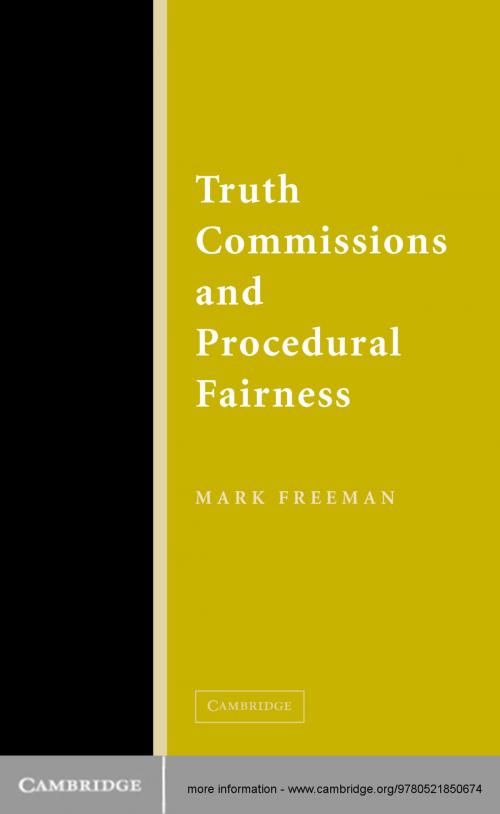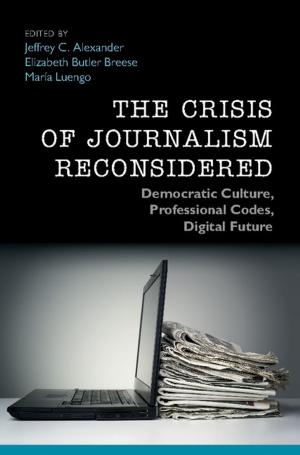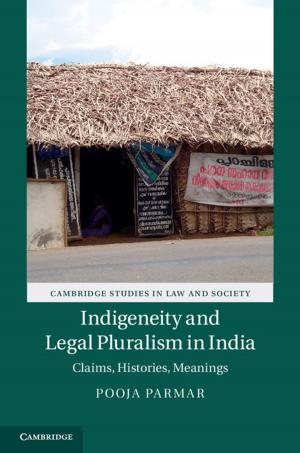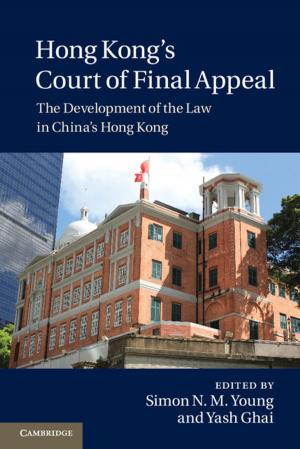Truth Commissions and Procedural Fairness
Nonfiction, Reference & Language, Law, International, Social & Cultural Studies, Political Science| Author: | Mark Freeman | ISBN: | 9781139810357 |
| Publisher: | Cambridge University Press | Publication: | August 14, 2006 |
| Imprint: | Cambridge University Press | Language: | English |
| Author: | Mark Freeman |
| ISBN: | 9781139810357 |
| Publisher: | Cambridge University Press |
| Publication: | August 14, 2006 |
| Imprint: | Cambridge University Press |
| Language: | English |
This is the first law book devoted entirely to the subject of truth commissions. The book sets forth standards of procedural fairness aimed at protecting the rights of those who come into contact with truth commissions - primarily victims and their families, witnesses, and perpetrators. The aim of the book is to provide recommended criteria of procedural fairness for five possible components of a truth commission's mandate: the taking of statements, the use of subpoenas, the exercise of powers of search and seizure, the holding of victim-centered public hearings, and the publication of findings of individual responsibility in a final report (sometimes called the issue of 'naming names'). The book draws on the experience of past and present truth commissions, analogous national and multilateral investigative bodies, and international and comparative standards of procedural fairness.
This is the first law book devoted entirely to the subject of truth commissions. The book sets forth standards of procedural fairness aimed at protecting the rights of those who come into contact with truth commissions - primarily victims and their families, witnesses, and perpetrators. The aim of the book is to provide recommended criteria of procedural fairness for five possible components of a truth commission's mandate: the taking of statements, the use of subpoenas, the exercise of powers of search and seizure, the holding of victim-centered public hearings, and the publication of findings of individual responsibility in a final report (sometimes called the issue of 'naming names'). The book draws on the experience of past and present truth commissions, analogous national and multilateral investigative bodies, and international and comparative standards of procedural fairness.















